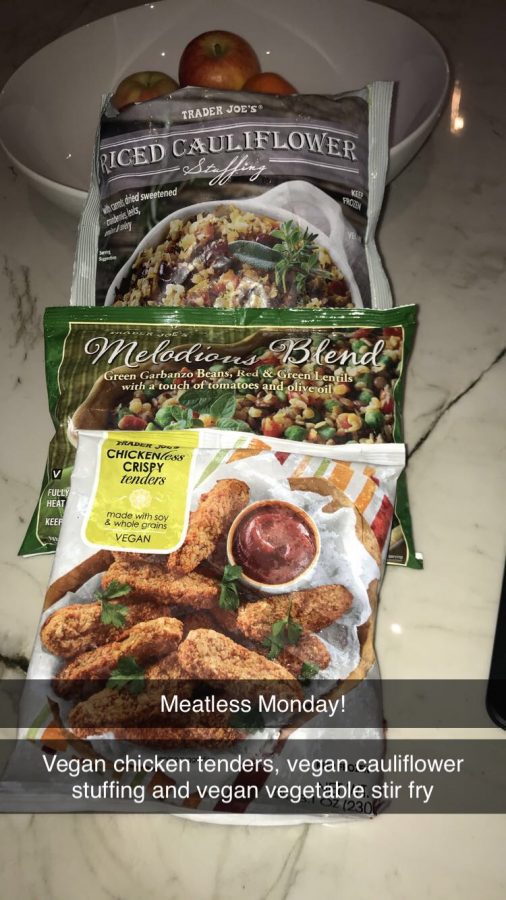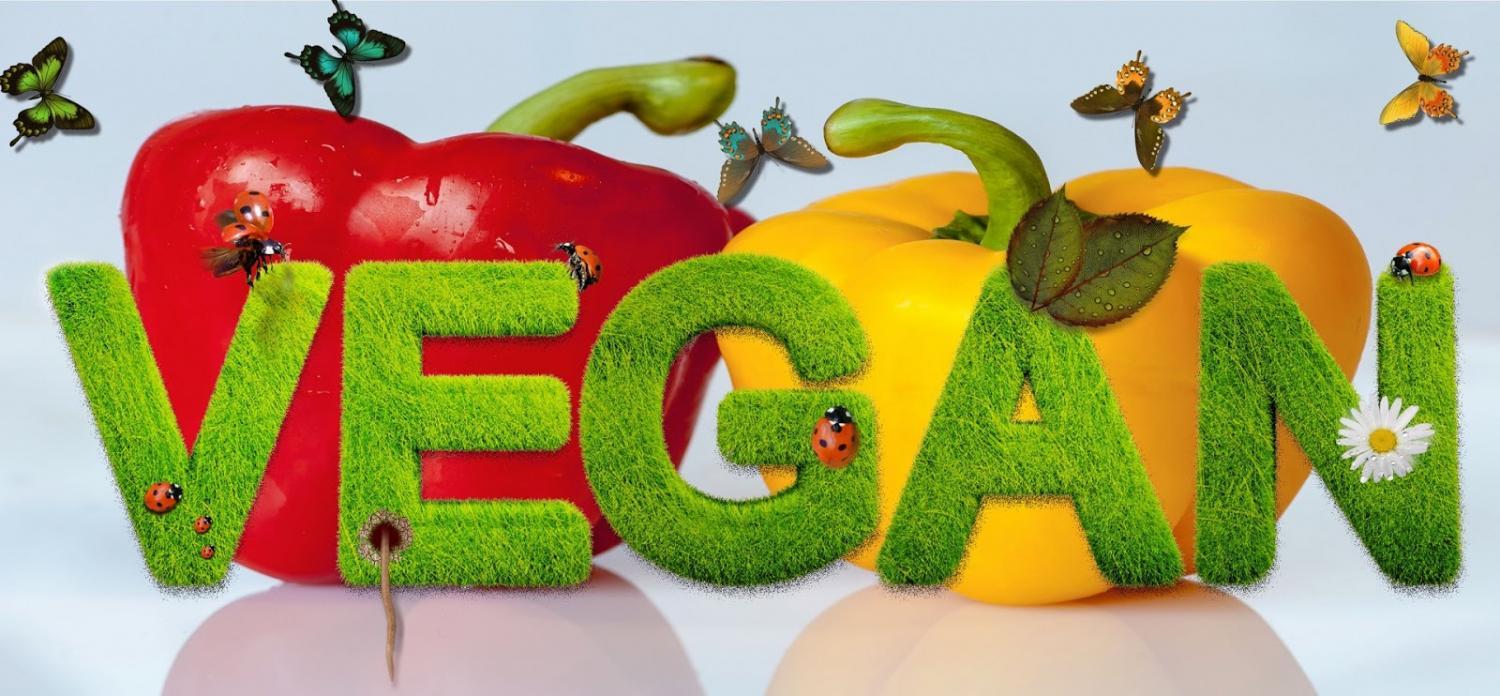Plant-based diets sprout into Staples
Vegan options are becoming the norm in most supermarkets, so there are plenty of new options for Meatless Monday – a growing trend in lots of households where no meat is consumed for the entire day.
Imagine a world where meat-eaters and dairy product consumers didn’t exist. Would it alter our health? Our daily lives? Our earth? The objective answer to all three of these questions is a definitive yes. For these reasons and countless others, plant-based diets seem to be an increasing trend: a trend that Staples is certainly not excluded from.
Places like Burger King, who partnered with Impossible Foods to create the meatless “Impossible Burger,” and Subway, who will soon be releasing the meatless meatball sub, are quickly responding to the increasing demand for plant-based foods. The Staples cafeteria, also hitching on to the trend, is now opening up their own no-dairy-no-egg options.
“There’s a lot more vegan options now than there were when I was younger,” Cailen Geller ’22, said. “The school cafeteria even has vegan cookies.”
Geller’s reasoning for this restrictive diet is her life-long allergies to dairy and egg. However, the rise in demand for more plant-based options consists of various motives.
“It started when I was little, my older sister was [a vegetarian]… I really liked seeing how passionate she was about something,” Katie Simons ’22 said. “It has more evolved into a concern for how much energy is wasted caring for the animal just to kill it and then to process the meat.”
Simons shares the same concern about wasted energy as so many others around the globe. According to the United Nations Food and Agriculture Organization, greenhouse gas emissions from livestock make up an estimated 14.5% of all global greenhouse gas emissions. But while this concern is Simons’ primary motive for a plant-based diet, other Staples students have differing perspectives.
“People always argue, ‘Why are you vegan instead of just vegetarian because you don’t want to eat dead animals?’” Alice Fielding ’22, who has been vegan for just over a year, said. “‘You can eat eggs, they don’t harm the chickens if they’re free-range,’ but usually the eggs aren’t free-range and I’m not going to buy something that I don’t support.”
According to The Hartman Group, 56% of Gen Z (people born between 1995-2014) and millennials have purchased a meat, milk, or dairy alternative in the past three months, as well as 66% of those who live in large cities or suburbs and 49% of women.
But though this increase in plant-based diets may be beneficial in a number of ways, health, may not be one of them.
According to THINK, “[The Impossible Whopper] not only has comparable caloric and fat levels as its meat-based counterparts, but it has more salt per serving… you might possibly save a few calories or carbs, but you’ll get away with more salt.”
Even without fast food alternatives, a plant-based diet means a huge cut in protein, and this could cause a whole different health issue for non-meat eaters.
“All my protein basically comes from hummus, cheese and Clif bars, so I know that for a really long time my doctor didn’t think that I should be a vegetarian – especially as a growing kid because I don’t like milk so I really wasn’t getting protein,” Simons said.
While plant-based diets began as a trend, for many, this diet has transformed into a lifestyle. With over 50% of consumers saying their ideal meal would consist of more plant-based foods, meat consumption is certainly on the decline. A new term was even coined for the large percentage of society that is choosing to incorporate more plant-based foods into their diets: “flexitarianism.” This growing plant-based population may not be for everyone, but veganism may just help this Earth become a better place.





















































